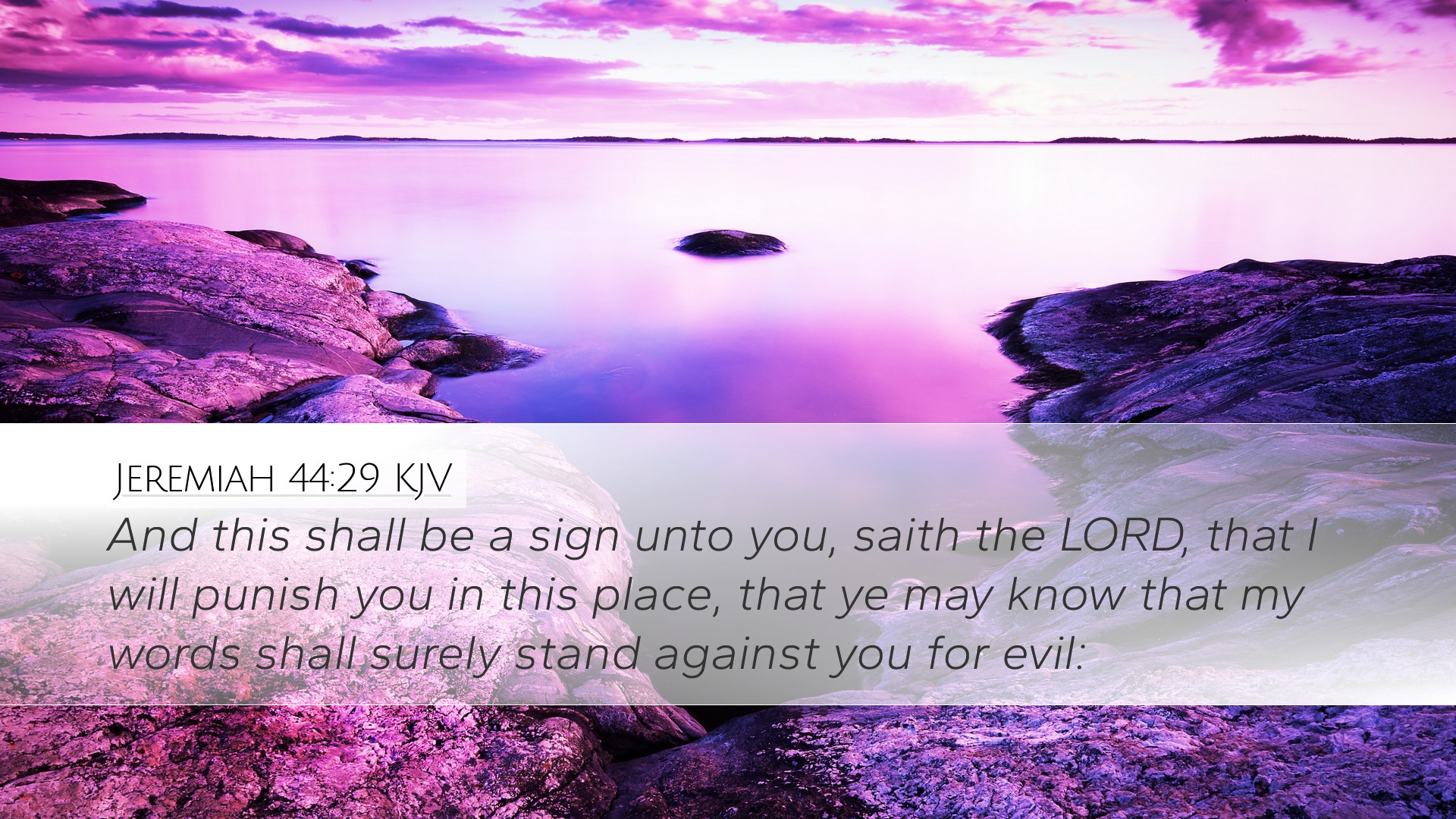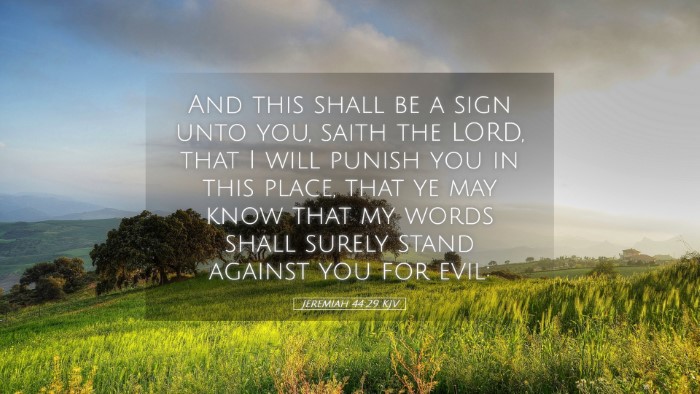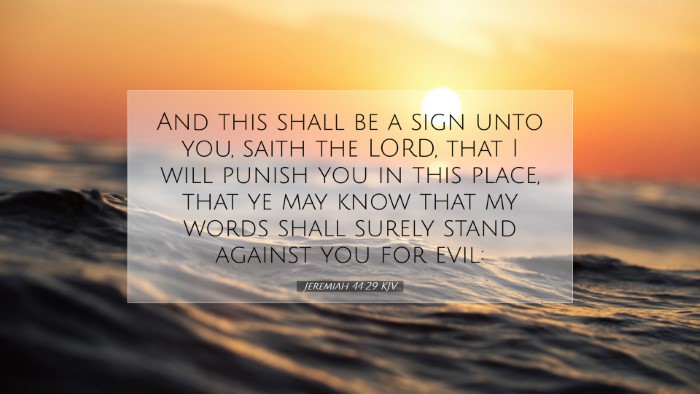Commentary on Jeremiah 44:29
Jeremiah 44:29 declares, "And this shall be a sign unto you, saith the LORD, that I will punish you in this place, that ye may know that my words shall surely stand against you for evil." This verse serves as a poignant reminder of the certainty of God’s judgment against disobedience, particularly as it pertains to the Israelites who persisted in idolatry and rebellion against His commands.
Contextual Overview
The book of Jeremiah primarily addresses the people of Judah and their impending judgment due to unfaithfulness. Jeremiah’s ministry occurs during a turbulent historical backdrop, including the Babylonian exile. In this context, Chapter 44 highlights the responses of the people of Judah who had settled in Egypt despite God’s warning against it.
These people sought refuge in Egypt believing they could escape God’s judgment that was imminent in Jerusalem. Instead of repentance and faithfulness, they continued in their idolatrous practices, particularly the worship of the queen of heaven.
Theological Implications
The verse encapsulates several theological themes:
- The Sovereignty of God: The declaration "Thus saith the LORD" underscores God’s authority over His people. His words are not optional but are declared with a divine imperative.
- The Certainty of Divine Judgment: The phrase "my words shall surely stand" reflects the unwavering nature of God's promises and warnings. What God has declared will come to pass, whether it be blessing or judgment.
- God's Desire for Recognition: The warning acts as a sign, indicating that the purpose is not just punishment but is also to bring awareness to the people regarding the consequences of their actions.
Commentary Insights
Matthew Henry's Commentary: Henry emphasizes the gravity of the situation, suggesting that the people’s refusal to heed Jeremiah's warnings culminated in their eventual doom. He notes that despite the clear signs and prophecies of judgment, the people remained obstinate, equating their idolatry with a lack of respect for God's commandments.
Albert Barnes' Commentary: Barnes expands on the idea of the sign given to the people. He posits that this sign underscores the faithfulness of God in bringing to fruition His word. God’s plans may delay, but they will ultimately be fulfilled. Barnes points out that historical events surrounding Jerusalem’s fall serve as a verification of God’s promises, both for the Israelites and for contemporary believers.
Adam Clarke's Commentary: Clarke discusses the nature of idolatry present in Judah, indicating that their continued worship of other gods signifies a profound spiritual blindness. He also points out that the sign mentioned is effectively a warning – a last call to repentance. Clarke highlights that the insistence on returning to Egypt was an act of unbelief and defiance against God, who had previously delivered them from bondage.
Practical Applications
For pastors, theologians, and scholars, several practical applications emerge from this text:
- Understanding the Nature of Sin: This verse invites reflection on the seriousness of idolatry and rebellion. It is a call to recognize the subtle forms of idolatry present in modern society.
- Assurance of God's Justice: Believers are reassured that God's justice will prevail. This can serve as a comforting reminder during times of uncertainty or distress, as God's word does not falter.
- Call to Faithfulness: Jeremiah's warning is a call to be vigilant in our faithfulness to God amidst cultural pressures to conform to practices contrary to His will.
Conclusion
Jeremiah 44:29 is a significant verse both in its historical context and theological implications. It calls for a serious introspection concerning personal and communal fidelity to God. The composite insights from public domain commentaries deepen our understanding of God's character as both just and merciful, imploring us toward a faithful response to His revealed word.


